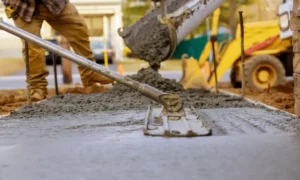There are many important tools for construction project managers. From project management to construction accounting software, these resources carry great value. They are built for both large general contractors and smaller construction companies. Depending on your needs and budget, a construction project manager should check out which software suits them best with the most functionality.
A construction project manager needs a thorough understanding of everything in construction. They must know the processes, building techniques, and industry standards. They may also benefit from numerous resources. Here are some essential tools for construction project managers:
Accounting Software
Construction accounting software can track many financial aspects, including cost accounting, invoicing and bill management, accounts payable and receivable, expense tracking, and budget management.
Time Tracking
Time tracking is important when managing a construction project. It shows how long something has been worked on and what has been worked on. It’s a way to maintain transparency and build trust with a client. Time tracking also shows completion rates.
Budgeting
Project management involves controlling costs by budget. Project managers may have multiple budgets to administer or create. Sometimes, when costs increase, modifications may also need to be made when budgeting.
Logs & Estimates
Logs are necessary to track work every day. A construction project has many aspects, and managing every aspect is only possible with updates from team leads and contractors and referencing reports and daily logs.
In addition, you may analyze, create, or approve estimates for different project phases as a project manager. They must have the software tools to analyze accurate estimates.
Documentation & Invoices
Construction projects require a lot of paperwork. This helps keep the client informed and ensures safety while keeping the project on track. The manager must review documents and data to manage on-site activities, especially when unexpected events happen.
In addition, a project manager must be able to send invoices and track payments. This is typically done through construction accounting software.
Compliance
A project manager must ensure a project is fully compliant with all accounting, health and safety regulations, and other regulations. This may involve arranging permits, insurance, and similar documentation to confirm that a project is not being completed illegally or without permission.
Schedules
Construction project managers need to follow a schedule. This schedule has a deadline and key points where progress is expected.
Bid Requests
Bid requests are accepted for different phases or aspects of a construction project. A project manager may or may not accept or consider bids.
Contractor Management
Personnel working on a construction project must be hired, paid, and managed. Part of this is HR, another is accounting, and another is tied to project management. A project manager must be able to manage their team.
Communication
Dozens of communication tools ensure managers can reach and talk to their construction team. These tools—including email, phone, video conferencing, and instant messaging—are vital.
Collaboration
Collaboration tools can often be found in project management software. This allows reports and data to be passed on to stakeholders and effective collaboration. This way, you can exchange messages on a platform you trust.
Report Generator
Construction sites require dozens of documents. Some can be created automatically using software, while others require human review. These reports help keep clients updated on a project’s status.
Chart Maker
Charts, particularly Gantt charts, are important in construction project management. They can be used in various ways to present a visual timeline of a project. Charts and visual representations are often included in reports and can explain better than pure text.
Risk Management
Risk management strategies and software help identify and evaluate risks. Sometimes, the risk is related to safety or efficiency. Other times, it’s financial. Risk analyses are needed to make informed decisions about construction projects.
Technical Tools
A project manager may need to step in at times. They are expected to know what they are talking about and have the technical tools to intervene when something goes wrong.
Health and Safety Equipment
A project manager needs all the tools, equipment, and resources to meet health and safety standards. This involves arranging access to equipment, scheduling maintenance on heavy machinery, and dealing with hazards or health and safety incidents as they come up.



































